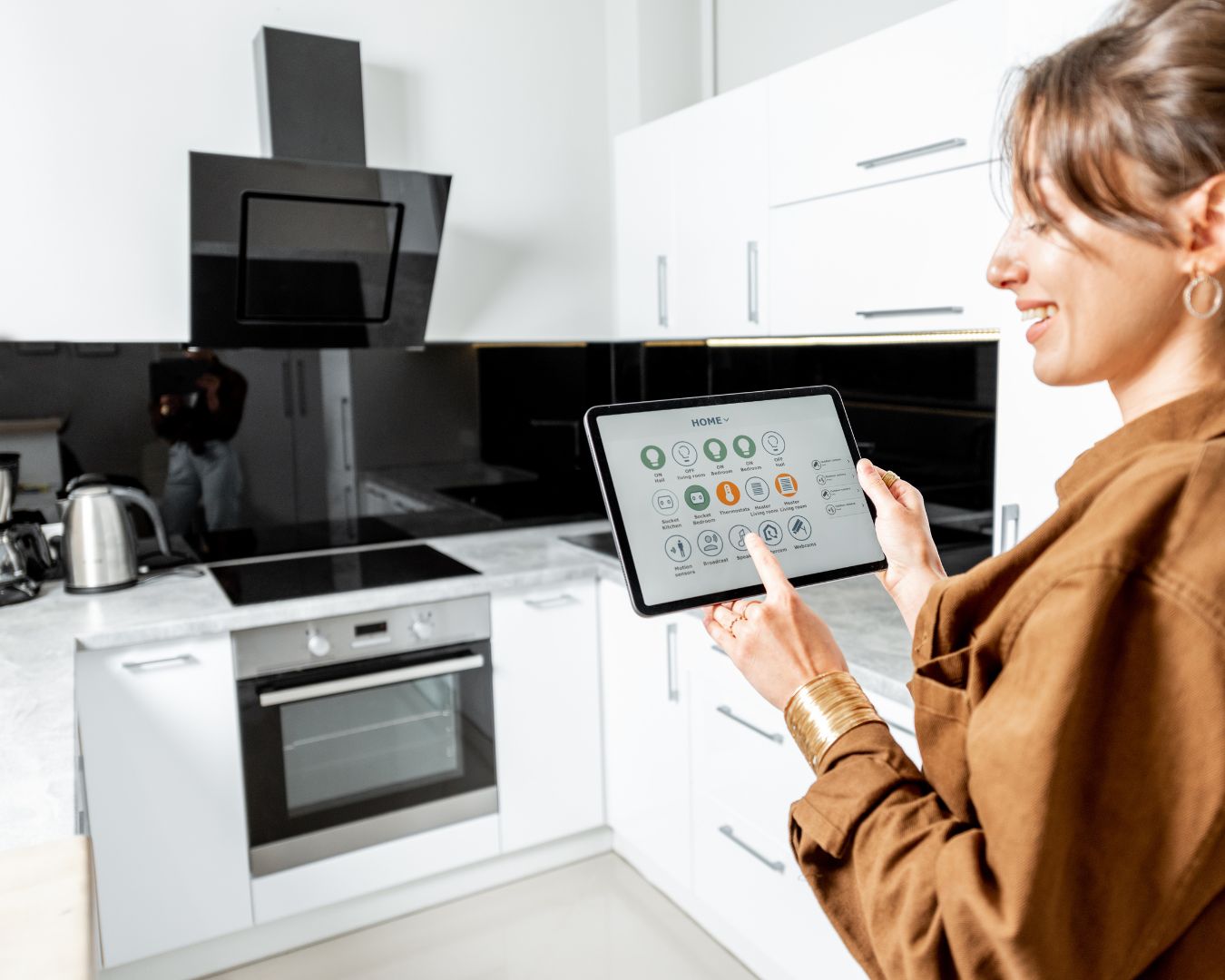How to Incorporate Smart Technology into Your Kitchen for Effortless Cooking
In today’s fast-paced world, technology is making its way into almost every part of our lives—and the kitchen is no exception. Smart kitchen technology offers convenience, efficiency, and control, making cooking and meal prep easier than ever before. Whether you’re a seasoned chef or a home cook looking to streamline your kitchen routine, integrating smart devices can enhance your cooking experience.
In this post, we’ll explore how smart technology can revolutionize your kitchen, from intuitive ovens to smart refrigerators, and provide tips for choosing the best devices for your needs.
1. The Rise of Smart Kitchens
Smart kitchens integrate technology to simplify meal preparation, grocery shopping, and organization. By automating tasks, syncing devices, and giving you more control, smart technology can save you time and energy in the kitchen.
- Smart Ovens: Many modern ovens offer features like preheating remotely, cooking based on recipe suggestions, or adjusting the temperature automatically based on the dish you’re making.
- Voice-Activated Assistants: Devices like Amazon Alexa or Google Assistant can help you set timers, convert measurements, or even provide step-by-step cooking instructions with just a voice command.
- Smart Fridges: These refrigerators come with features like touchscreens to display recipes, tracking your groceries, or even suggesting meals based on what you have available.
2. Smart Cooking Devices for Your Kitchen
A variety of smart devices can elevate your cooking game. Let’s take a look at some of the most popular ones:
Smart Ovens
- What They Do: These ovens often feature Wi-Fi connectivity, allowing you to control your oven from your phone. They can notify you when food is done, suggest optimal cooking settings, and even offer cooking tips.
- Why You Need One: A smart oven can make baking and roasting easier, with features like precision temperature control that ensures more consistent results.
Smart Slow Cookers & Pressure Cookers
- What They Do: Slow cookers like the Instant Pot or Wi-Fi-enabled models allow you to control cooking times and settings remotely through your phone. These devices often come with pre-programmed recipes and the ability to keep food warm until you’re ready to eat.
- Why You Need One: They are ideal for busy families or individuals who need to prepare meals in advance, providing greater flexibility in meal prep.
Smart Blenders and Food Processors
- What They Do: Some blenders come with pre-set functions for smoothies, soups, and even dough, while advanced models allow you to connect them to an app for personalized recipes.
- Why You Need One: Perfect for making everything from smoothies to soups to sauces with minimal effort.
3. Benefits of Smart Kitchen Technology
Incorporating smart technology into your kitchen provides a wide range of benefits that go beyond convenience:
- Time-Saving: Many smart kitchen appliances have features that save time, such as automatic cooking cycles, pre-programmed recipe settings, or even app-controlled scheduling.
- Precision: Devices like smart ovens or smart scales offer more precision in your cooking, helping you achieve perfect results every time.
- Energy Efficiency: Many smart appliances are designed to optimize energy use. For example, some smart ovens only heat the area around your food, reducing energy waste.
- Remote Control: You can preheat your oven while you’re out, set the coffee machine to brew while you’re still in bed, or check your refrigerator’s contents from the grocery store.
4. Choosing the Right Smart Kitchen Devices for You
With so many smart devices available, how do you choose the best ones for your kitchen?
Consider Your Cooking Style
- Beginner Cooks: If you’re just starting out, a smart slow cooker, pressure cooker, or basic smart oven might be the most beneficial as they help take the guesswork out of cooking.
- Advanced Cooks: If you already have a good grasp on cooking, consider investing in a smart scale, multi-functional food processor, or high-tech range hood that integrates with your home assistant.
Set Your Budget
- Affordable Options: Many entry-level smart kitchen devices offer essential features, such as Wi-Fi connectivity or app control, at reasonable prices.
- Premium Devices: If you’re looking for top-of-the-line functionality, you can find smart ovens, refrigerators, or cooking assistants with advanced features—but they come with a higher price tag.
Compatibility with Your Home System
- Make sure that the devices you choose are compatible with your existing home ecosystem. If you already use a voice assistant like Alexa or Google Home, check if the appliance integrates well with those systems.
5. Future Trends in Smart Kitchens
The future of the smart kitchen is incredibly exciting, with technology evolving rapidly. Here are a few trends to watch for:
- AI-Powered Cooking: In the future, we could see appliances that adapt to your cooking habits, offering suggestions based on your preferences and previous meals.
- Smart Cookware: Cookware like smart pots and pans with sensors will alert you when food is done or when your heat is too high, providing even greater precision.
- Sustainability: Expect more eco-friendly smart kitchen devices, such as energy-efficient refrigerators and composting systems that help reduce food waste.
Smart technology is revolutionizing how we cook, organize, and manage our kitchens. By incorporating these devices into your cooking routine, you can save time, improve precision, and make cooking more enjoyable. Whether you’re looking to preheat your oven remotely or streamline your meal prep with smart slow cookers, there’s a smart device for every home cook.
Which smart kitchen gadget would you love to try? Let us know in the comments below or share your experiences with smart cooking technology!

